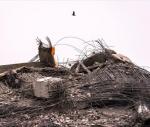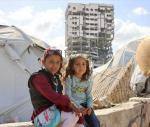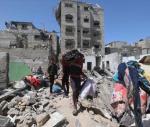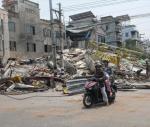You are here
Jordanian, Russian universities eye more cooperation in research
By Dana Al Emam - Oct 20,2014 - Last updated at Oct 20,2014
AMMAN — Representatives of local universities and their Russian counterparts on Monday discussed means of enhancing academic cooperation, including the establishment of a Russian-Jordanian technical university and increasing scholarships for Jordanians at Russian universities.
Hosted by the University of Jordan (UJ), the two-day conference is the fruit of cooperative efforts initiated by the leaders of the two countries in political, economic and cultural domains, UJ President Ekhleif Tarawneh said.
“There are over 160 students studying the Russian language at UJ, in addition to around 11 Russian students currently learning Arabic at the university,” Tarawneh said at the conference, adding that some 1,100 Jordanians study at Russian universities.
Highlighting the role of universities in spreading cross-cultural dialogue and knowledge, he underscored Jordan’s need to benefit from Russian expertise in the fields of nuclear energy and oil, as they are the Kingdom’s current and future priority.
Higher Education Minister Amin Mahmoud, who attended the conference, expressed Jordan’s interest in establishing a joint technical university to give Jordanian students the chance to work on scientific projects with Russian peers.
For his part, Russian Ambassador Boris Bolotin said Jordanian-Russian relations are developing well “in the correct direction”, especially since Moscow and Amman share similar views on several issues, including fighting terrorism and extremism.
“Developing partnership and cooperation in education and academia motivates further cooperation in scientific research,” he said.
Bolotin argued that in the 21st century, the level of education in a country defines its value.
Larisa Efremova, deputy head of Rossotrudnichestvo, the Russian agency for international cooperation, said there are over 1,000 universities in Russia, some of whose representatives were able to attend the conference at UJ, while others who were unable to come are also interested in cooperating with Jordanian universities.
Instability in the world and its fast military, political and economic developments hinder dialogue among nations, Efremova noted, but the situation for the Kingdom’s leadership and people is different, as Jordan enjoys “a rare ability for dialogue”.
The second day of the conference is scheduled to include a workshop on developing teaching methods of the Russian language at Jordanian universities, in addition to a roundtable discussion on boosting bilateral cooperation in science and technology.
Related Articles
AMMAN — Minister of Education and Minister of Higher Education Walid Maani on Wednesday met Larisa Efremova, Vice-Rector for International A
Kursk State Medical University and the Jordan University of Science and Technology are currently examining the possibility of launching a satellite for peaceful purposes, Russian Ambassador to Jordan Boris Bolotin said on Monday.
Jordan and Russia on Monday examined the possibility of increasing the number of Russian government-funded grants for Jordanian students.


















